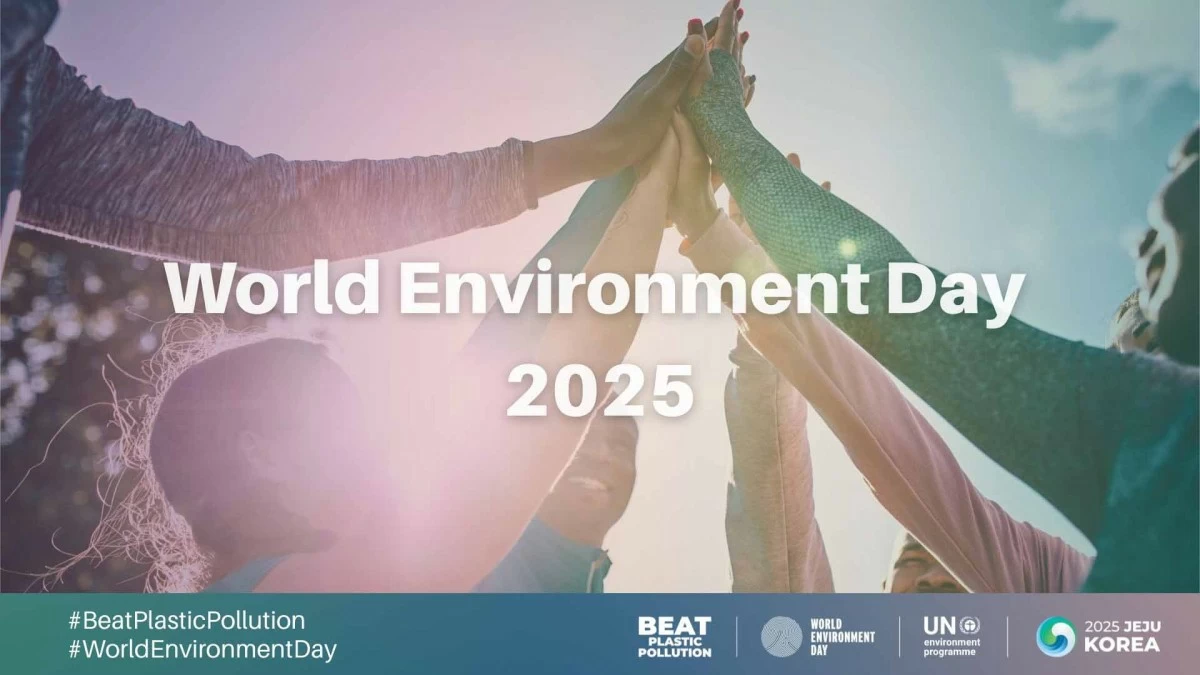Every year on June 5, a global movement takes shape, with millions of people from over 150 countries coming together to do one thing—protect the planet. World Environment Day, led by the United Nations Environment Program (UNEP), is more than just another date on the calendar marked for an international observance. It is a movement that calls on every individual not just to observe, but to actively do the planet good.

Since its founding in 1973, World Environment Day has become the world’s largest platform for environmental awareness and action. This year marks an urgent message. The theme, “Ending Global Plastic Pollution,” calls for a bold action plan to tackle one of the most visible and pervasive threats to our ecosystems in decades.
The year’s host nation, South Korea, is leading the charge, with Jeju Province—a lush volcanic island known for its natural beauty and environmental stewardship—serving as the symbolic ground zero for change. From coastal cleanups and policy dialogues to creative exhibitions and seminars, South Korea’s programs this year are designed to engage everyone—from corporations and government leaders to local communities and students.
Plastic pollution is no longer just a topic for climate conferences or academic journals—it is a crisis we see and feel daily. The numbers speak for themselves: The world produces an estimated 57 million tons of plastic pollution every year, the majority of which becomes waste. Much of it ends up in our oceans, rivers, and even in the air we breathe.
Beginnings in Stockholm
World Environment Day was born out of the historic 1972 United Nations Conference on the Human Environment in Stockholm, Sweden—the first global meeting to place environmental issues at the forefront of international policy. One year later, in 1973, the first World Environment Day was celebrated under the theme “Only One Earth.”
That spirit—of shared responsibility, action, and hope—has never wavered. From spotlighting climate change and deforestation to championing biodiversity and sustainable consumption, each annual theme reflects the evolving challenges of our time. And with plastic pollution now impossible to ignore, this year’s theme strikes an urgent chord.
Local scene
For the Philippines, the plastic problem is rampant. As an archipelagic nation with some of the world’s richest marine ecosystems, the country also bears one of the heaviest environmental burdens.
According to the Department of Environment and Natural Resources, the Philippines generates 2.7 million metric tons of plastic waste annually, with a significant portion polluting our oceans. In fact, this places the country among the top contributors to marine plastic pollution globally.
To address this, the DENR launched the National Plastic Action Partnership (NPAP) Philippines earlier this year. The initiative aims to transition the country from a linear economy—where products are used and discarded—to a circular one, where waste is seen not as a burden but as a potential resource. It’s a decisive pivot toward sustainability, placing greater emphasis on rethinking how we consume and reuse within a mindset of systemic change.
NPAP supports a network of key national and global policies, including the Extended Producer Responsibility (EPR) Act, the Philippine Action Plan for Sustainable Consumption and Production (PAP4SCP), and long-standing commitments under the Paris Agreement, the Sustainable Development Goals, and the Global Diversity Framework.
In recent years, local government units and communities have taken it upon themselves to effect change. From refillery stations and zero-waste sari-sari stores to plastic offset programs and sustainable packaging start-ups, solutions are sprouting in places where action is most needed.
Call to action
Plastic pollution is intricately linked with other global challenges—from climate change to biodiversity loss. Ending it is essential to achieving the Sustainable Development Goals, especially those that focus on sustainable production and consumption, ocean health, and ecosystem restoration.
UN Secretary-General Antonio Guterres, in his message for World Environment Day 2025, said: “We need an ambitious, credible and just agreement this year—one that covers the life-cycle of plastic through the perspective of circular economies; that responds to the needs of communities; that aligns with broader environmental goals, the Sustainable Development Goals, and beyond; and that is implemented fast and in full.”
This year’s World Environment Day isn’t just a global campaign—it is a wake-up call that we only get one Earth. And there is, truly, no time to waste.